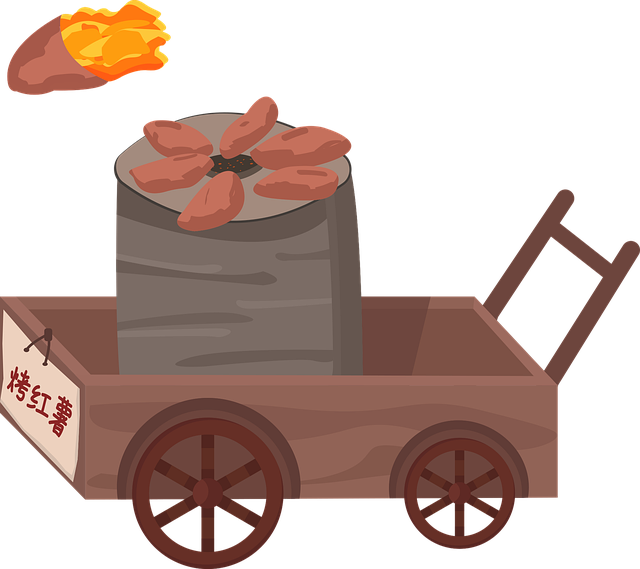TL;DR:
UK Historical Documents Translation Services play a vital role in deciphering and sharing global history by accurately translating diverse linguistic records, preserving cultural nuances, historical references, and terminologies. These services bridge language barriers, enable worldwide access to primary sources, and foster inclusive historical knowledge. Combining linguistic expertise with historical sensitivity, these translators ensure nuanced meanings are preserved, enhancing our understanding of history's intricate tapestry. Advanced technologies like machine translation and AI are revolutionizing the process, making it more efficient, precise, and accessible. Globalization drives the need for cross-cultural understanding, highlighting the growing importance of these services in preserving and interpreting historical documents worldwide.
“In an increasingly globalized world, UK Historical Documents Translation Services play a vital role in connecting diverse communities with their shared past. This article explores the intricate art of translating historical documents for a global audience, delving into its significance and impact on historical research. From understanding cultural nuances to navigating complex ethical dilemmas, we dissect the process through case studies and future trends. Discover how technology is revolutionizing ancient document translation and why professional services are indispensable in UK history research.”
- Understanding the Significance of Historical Document Translation
- The Role of Professional Translation Services in UK History Research
- Unlocking Historical Records: Challenges and Solutions
- Accurate Translation for a Global Audience
- Best Practices for Translating Historical Texts
- Ethical Considerations in Historical Document Translation
- Technology's Impact on Translating Ancient Documents
- Case Studies: Successful Translations in Historical Contexts
- Future Trends in UK Historical Documents Translation Services
Understanding the Significance of Historical Document Translation

In the realm of global history, where narratives traverse borders and cultures intertwine, the role of accurate historical document translation cannot be overstated. UK Historical Documents Translation Services play a pivotal role in unlocking the secrets of yesteryear, ensuring that historical records from diverse languages are accessible and interpretable. These services are instrumental in preserving and sharing the rich tapestry of global history, allowing scholars and enthusiasts to navigate complex narratives seamlessly.
Historical document translation goes beyond mere word-for-word conversion; it involves a deep understanding of cultural contexts, historical references, and terminologies specific to different eras. Professionals in this field meticulously work to convey the essence and nuances of ancient texts, ensuring that modern readers can grasp the significance without losing the original intent. With UK-based services leading the way, historians worldwide benefit from precise translations, fostering a more inclusive and comprehensive global historical understanding.
The Role of Professional Translation Services in UK History Research

In the field of UK history research, access to primary sources is paramount. However, many historically significant documents are not in English, posing a challenge for scholars and researchers. This is where professional translation services play a pivotal role. They offer specialized expertise in UK historical documents translation, ensuring that researchers can uncover and understand the richness of Britain’s past through its original texts.
Professional translation companies employ linguists who not only master the target language but also have a deep understanding of historical contexts. This combination allows them to deliver precise translations that capture the nuances and cultural subtleties of the original documents. By utilizing UK Historical Documents Translation Services, researchers can explore a broader range of sources, filling gaps in their knowledge and expanding the scope of their studies.
Unlocking Historical Records: Challenges and Solutions

Historical records are a treasure trove for researchers, offering insights into the past that can shape our understanding of today. However, when it comes to exploring global history, one significant challenge arises – language barriers. Many historical documents are written in languages other than English, particularly in countries with rich cultural and linguistic diversity. This is where specialized UK Historical Documents Translation Services step in, playing a pivotal role in unlocking these hidden narratives.
These translation services employ expert linguists who possess not only fluent proficiency but also a deep understanding of historical contexts. They navigate the complex task of translating not just words but also nuances, ensuring that the original meaning and intent are preserved. By utilizing advanced technologies and industry-specific terminology databases, they deliver accurate translations tailored to the academic and historical requirements of researchers worldwide. This enables global historians to access and interpret documents from various regions, fostering a more comprehensive and inclusive understanding of history on a global scale.
Accurate Translation for a Global Audience

In an era where history knows no borders, accurate translation plays a pivotal role in connecting scholars and enthusiasts globally. For those delving into UK historical documents, professional translation services are indispensable tools. These services not only ensure that texts from the past are accessible but also maintain their integrity and nuanced meaning across languages.
When translating historical documents, precision is paramount. UK Historical Documents Translation Services employ linguists with a deep understanding of both modern and period-specific language, terminology, and cultural context. This ensures that the translated material accurately represents the original intent, allowing global historians to piece together the intricate tapestry of history without missing vital threads.
Best Practices for Translating Historical Texts

When translating historical texts, accuracy is paramount. UK Historical Documents Translation Services often face the challenge of preserving both the literal meaning and the cultural context of documents. To achieve this, professional translators must have a deep understanding of both the source and target languages, as well as the historical period in question. They should also consult with historians to ensure the translation aligns with contemporary interpretations.
Best practices include using specialized terminology relevant to the field of history, maintaining consistency in names, dates, and other important details, and paying close attention to nuances in language that might carry different connotations across cultures. Additionally, translating historical texts requires an eye for style and tone, ensuring the final product reads naturally while capturing the original intent. This meticulous approach is crucial for UK Historical Documents Translation Services to deliver high-quality, reliable translations that stand up to academic scrutiny.
Ethical Considerations in Historical Document Translation

When translating historical documents, especially those from different cultural contexts, ethical considerations come to the forefront. It is crucial for UK Historical Documents Translation Services to approach this task with sensitivity and integrity. Every document holds a unique story, often containing sensitive information or perspectives that may have been influenced by societal norms of their time. Translators must be vigilant to preserve the original intent and meaning while avoiding potential biases or misinterpretations.
One key ethical consideration is cultural appropriation and the potential impact on descendants or living relatives whose stories are documented. Translators should ensure they handle sources with respect, maintaining confidentiality and privacy when dealing with personal narratives. Additionally, it’s essential to be mindful of language evolution; translating terms accurately requires a deep understanding of historical linguistics to convey the correct nuance, ensuring that the translated text resonates with modern readers while remaining faithful to its historical context.
Technology's Impact on Translating Ancient Documents

In the digital age, technology has vastly improved the field of translation, especially for ancient documents that hold invaluable historical insights. The advent of advanced machine translation tools and artificial intelligence (AI) algorithms has revolutionized UK Historical Documents Translation Services. These technologies enable linguists to access vast databases, leveraging prior translations and linguistic knowledge to deliver more accurate and nuanced interpretations.
For instance, optical character recognition (OCR) software can scan and digitize ancient texts, converting them into editable digital formats. This not only streamlines the translation process but also preserves the original documents for future reference. Additionally, machine learning models can analyze patterns in historical languages, helping translators capture subtle meanings and cultural contexts that might be lost in traditional manual translation methods. As a result, UK Historical Documents Translation Services are becoming more efficient, precise, and accessible, opening doors to a richer understanding of global history.
Case Studies: Successful Translations in Historical Contexts

In the realm of historical research, the ability to access and understand documents from different eras and cultures is paramount. This is where UK Historical Documents Translation Services play a pivotal role, ensuring scholars can navigate a vast and diverse tapestry of knowledge. Case studies demonstrate the intricate art of translation in historical contexts. For instance, when translating medieval manuscripts, translators must grapple with archaic languages and complex terminologies, often requiring a deep understanding of the historical period to convey the nuances accurately.
Successful translations have facilitated groundbreaking research, enabling historians to piece together the past with greater precision. By providing accessible interpretations of ancient texts, these services foster a deeper connection between contemporary readers and historical events. This is particularly evident in projects involving international collaborations, where diverse teams work together to unravel the mysteries of bygone eras, ensuring that historical documents from across the globe are not just preserved but also made meaningful for future generations.
Future Trends in UK Historical Documents Translation Services

The future of UK historical documents translation services looks promising, driven by increasing globalization and a growing demand for cross-cultural understanding. Advanced technologies such as machine translation and artificial intelligence are set to revolutionize this field, making processes faster and more efficient while preserving linguistic accuracy. These innovations allow for quick initial translations, which can then be refined by human translators, ensuring high quality and contextually appropriate interpretations.
Additionally, there’s a growing recognition of the importance of preserving cultural nuances and historical contexts in translation. UK-based translators are increasingly equipped with expertise in specific historical periods and cultural backgrounds, enabling them to deliver nuanced translations that capture the essence of the original documents. This specialized knowledge is particularly valuable when dealing with archives from diverse historical periods and regions, ensuring that global historians have access to accurate and meaningful interpretations of historical records.
In the pursuit of global historical understanding, UK Historical Documents Translation Services play a pivotal role in breaking down linguistic barriers. By navigating the unique challenges of translating ancient texts and esoteric records, professionals ensure that diverse voices and narratives from the past are accessible to a worldwide audience. Embracing best practices, ethical guidelines, and innovative technologies, these services are transforming how we interact with history, fostering a more inclusive and comprehensive global historical tapestry.
